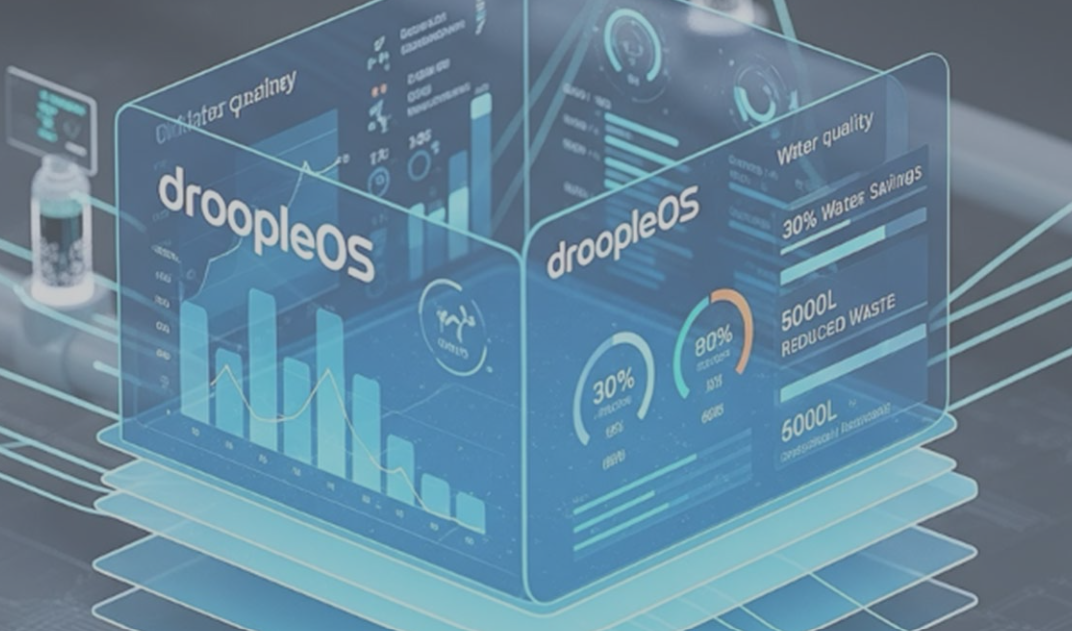Investing in a Sustainable Tomorrow
As a Swiss expert in cleantech solutions, Droople had been invited to take part in Pictet’s “Sustainability Week”. This year’s edition focused on how as a firm, as investors and in our respective daily activities we all have a role to play in building a sustainable future. This internal annual event organized by Pictet aims to raise staff awareness of the increasingly crucial issue of responsibility and sustainability, as employees all around the world are given the opportunity to listen to talks by internal and external sustainability experts. How does today’s cleantech view the solutions offered for the climate challenges of tomorrow?

As a Swiss expert in cleantech solutions, Droople had been invited to take part in Pictet’s “Sustainability Week”. This year’s edition focused on how as a firm, as investors and in our respective daily activities we all have a role to play in building a sustainable future. This internal annual event organized by Pictet aims to raise staff awareness of the increasingly crucial issue of responsibility and sustainability, as employees all around the world are given the opportunity to listen to talks by internal and external sustainability experts. How does today’s cleantech view the solutions offered for the climate challenges of tomorrow?
Founded in Geneva, Pictet Group is a leading Europe-based financial institution firmly anchored in long-term investment strategies, applying Environmental, Social and Governance (ESG) criteria to help make better long-term decisions. Pictet also plays an active role in supporting organizations that promote responsible investments, helping to raise awareness and capital for a sustainable transition.
“We’re starting to really structure our thinking around impact,” comments Marie-Laure Schauffelberger, Head of Group ESG & Stewardship. “It is absolutely key to distinguish between ESG integration and impact. ESG integration is about how environmental and social governance factors impact the price of assets, the risk return characteristics of companies in which we invest, and the issuers in which we invest. Impact, on the other hand, looks at how our investments or an economic activity or how we channel capital flows actually contributes to environmental and social factors”.
Key solutions to the global water challenges

One of the key elements of the Pictet strategy is the investment in solutions to the global water challenges, leading to the creation of Pictet Water Fund in 2000. Its goal is to capture investment opportunities across all areas of the global water industry, with a particular focus on water supply, water technology and environmental services. Indeed, companies able to provide solutions to the global water challenge are likely to represent attractive opportunities for investors for several decades.
In a panel discussion during the 2021 Sustainability Week at Pictet, experts discussed how digital technologies can help shape a better future. As a former computer scientist, and water industry expert, Ramzi Bouzerda, CEO of Droople, sees the role of data as key in the solution of the global water challenges:
How can today’s technologies bring answers to the climate challenges of tomorrow?
“IoT and AI will change the way we collect and leverage data, and the water industry is not an exception. If we can find better ways to use and manage water today, they will be embedded in our daily life in ten years from now. To achieve this, Droople and its partners are building the Internet of Water, a platform providing intelligence and technology tools to fight climate change and contribute to achievement of the global Sustainable Development Goals, as defined by the United Nations. Predictive models of water usage become increasingly interesting today: not only to increase efficiency in terms of water use, but also to build smarter cities through data-based resources management and circularity.”
What is the role of responsible investment in the global transition to a sustainable economy?
“The investment in businesses that implement a circular economy as their core purpose will enable business models based on resource savings and reuse, such as water – our shared source of life, as well as pay-per-use models.
The three pillars supporting sustainable economic growth are clean technology, circular business models and last but not least, the human factor, gathered under the same roof of policies and regulations designed to enable long-term change. As cleantech businesses, we are technology providers, and must commit to fighting climate change. To accelerate the transition to a more sustainable economy, responsible investment has a global role to play in supporting the worldwide adoption of cleantech innovations.”

Recent expansion of data-based technologies may also contribute to the global carbon footprint. How can cleantech businesses demonstrate that they really reduce the environmental impact?
“Cleantech startups have to prove the real balance of the footprint they create versus resources savings. If we implement new technologies able to better manage our vital resources such as water, if our devices can last more than 10 years, if we can exchange their batteries, if we can recycle them – then global technologies become more environmentally friendly. We can really make a positive impact. “
Login at https://app.droople.com with the credentials you received. Welcome to your Water Intelligence Platform!
All Gateways are using a LoRa network, but we will discuss together the technical specificities of the place you are equipping to adapt our offer between a 4G, Wifi or Ethernet gateway. More on our Support page
You can find help here.
For more, visit the Droople Support page to access the DIY videos and Quick Start Guides based on your product.
Each Droople iLink has a unique QR Code. Scanning takes you to configure it to a new or existing "asset". After configuration and use of your tap, you already have access to your metrics. For detailed instructions, you can find videos and tutorials on our Support page: https://droople.readme.io/
Our Support page can be found here https://droople.readme.io.
Our Technical Specifications here.
If you need any other assistance, please contact us here






